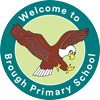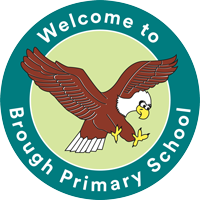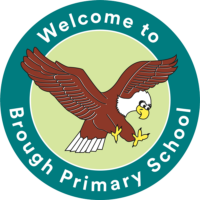Intent
At Brough Primary school our Personal, Social, Health and Economic (PSHE) curriculum gives children the opportunity to be ‘lifelong learners’ with the confidence and ability to develop their skills and understanding when having new experiences, meeting new challenges and finding themselves in unfamiliar situations.
Our PSHE curriculum aims to help children to understand and value how they and others fit into and contribute to the world. We place a strong emphasis on emotional literacy, building resilience and nurturing mental and physical health through the delivery of a programme of engaging and relevant PSHE within a whole school approach, which will impact on their whole education.
At Brough Primary School, good relationships are fundamental to our ethos and our success in being a happy, caring and safe school. Relationships and Sex Education (RSE) is lifelong learning about relationships, emotions, looking after ourselves and different families.
We believe that it is essential to teach PSHE to provide the link between pupils’ health and wellbeing and their academic progress.
Aims
The aims of the PSHE curriculum in Brough Primary School are:
- To provide children with accurate and relevant knowledge.
- To present opportunities to create personal understanding.
- To offer a chance to explore a range of values, attitudes, beliefs and rights.
Implementation
At Brough Primary School PSHE/RSE is implemented using the SCARF (Safety, Caring, Achievement, Resilience, Friendship) programme which is a whole school approach. The curriculum for PSHE is delivered throughout the whole school, not just within the classroom. Many objectives are also covered as an important part of school assemblies, where children’s spiritual, moral, social and cultural curiosity is stimulated, challenged and nurtured.
The six topics covered are:
- Me and My Relationships
- Valuing Difference
- Keeping Myself Safe
- Rights and Responsibilities
- Being my Best
- Growing and Changing
RSE is taught as explicit lessons through the PSHE and science curriculums but is also embedded in other areas of the curriculum and day-to-day life of the school. In PSHE, RSE is specifically covered in the units ‘Me and My Relationships’ and ‘Growing and Changing’ and in science ‘Animals Including Humans’ and ‘Living Things and Their Habitats’. Some elements of PHSE are covered in the Religious Education curriculum. Children are taught by familiar adults who they have a good rapport with, in order to facilitate constructive and supportive discussions around sensitive topics in a safe and secure environment.
The RSE curriculum has been mapped out in the progression grids which ensure coverage of all of the statutory elements by the end of Year 6; these are delivered at the appropriate age and stage for our children.
Through our progressive curriculum, children develop key skills and are extremely well prepared for the wider world beyond primary school; a world in which they can keep themselves safe and healthy and thrive with the support of the positive relationships they forge with those around them.
Impact
At Brough Primary School we want to ensure that the PSHE that we teach improves the physical and social well-being of pupils. We want pupils to know and understand who they are and how they fit in to and relate to the world around them. Through our PSHE curriculum, we believe that we can enhance children’s education and help them to become caring, respectful and confident individuals. They will be equipped with the knowledge they need to maintain a healthy and positive lifestyle with regard to relationships, their diet and their own personal identity.
When children leave us in Year 6 they will have an in-depth knowledge of how to keep themselves safe and healthy and they will, through respect, tolerance and understanding, forge and maintain positive relationships with a diverse range of family and friendship groups.
Children will meet or exceed the progression of skills requirements in the six topics covered annually.
We measure the impact of our curriculum by: –
- Monitoring how children demonstrate a healthy outlook towards school – attendance will be in-line with national and behaviour will be good.
- Discussions will be used to assess knowledge and inform future planning.
- Children will demonstrate effective interpersonal relationships and a respectful, caring attitude towards others.
- Children will demonstrate a caring attitude towards and responsibility for the environment, both locally in terms of the school and its surroundings but also the wider world.
- Monitoring of taught skills across the school to evidence progress.


